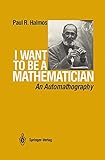http://www.ams.org/journals/bull/1994-30-02/S0273-0979-1994-...
(which I learned about from a comment here on HN, thanks) does a good job of demonstrating how a mathematician who makes new discoveries has to invent a new language for describing those discoveries. Then the mathematician has to relentlessly practice communicating those results first to other professional mathematicians, helping them to see the connections between their research and the new research results. Mathematicians who work hard at communicating with other mathematicians, Thurston says, can help greatly with the progress of mathematical research.
After edit: Paul Halmos, quite a well regarded mathematician who by his own self-evaluation was not in the same league as Fields medalists, wrote in his "automathography"
http://www.amazon.com/I-Want-Be-Mathematician-Automathograph...
that he learned a lot of mathematics as he continued his career after his Ph.D. degree by "reading the first ten pages of a lot of mathematics books." Sometimes he could only get ten pages into a book by another mathematician before he was lost, but by reading dozens and dozens of books, ten pages each, he gained more conceptual foundations in more areas of mathematical research and could gradually apply what he self-learned to advance his own research. I strongly encourage students I know to follow that same strategy of reading at least the introductory portion of many books on subjects they desire to know. Don't just read what your professor assigns you to read. Go to the library and read widely. Read as far as you can before you get stuck, and then find another book and start reading it from the beginning until you get stuck again. Eventually, you will find that you can read harder books, and go farther before getting stuck.
Two more must read books: 1. "The Mathematical Experience" by Davis and Hersh (http://en.wikipedia.org/wiki/The_Mathematical_Experience#cit...) 2. "I Want To Be a Mathematician" (http://www.amazon.com/I-Want-Be-Mathematician-Automathograph...).
Probably the key thing for me in helping my math ability was to actively try to prove theorems. Before reading a proof, I always try to solve the theorem myself first. And then after reading the actual proof... try to prove it again. You'll be surprised how many times you can't prove a theorem for which you just read the proof!!!
But this will help you get better at doing proofs, and understanding math. And it will also help you appreciate good proofs, because you would have already tried to solve it. You'll say, "Ahh... I didn't even think to try that, but that was exactly the step I would have needed".
Lastly, as someone else mentioned -- the proofs you read in texts are polished proofs. Often those theorems proved have been attempted by famous mathematicians who failed to prove it in their lifetimes. Take your time, be rigorous, and thoughtful. If you do that, you come out ahead regardless.
http://www.amazon.com/I-Want-Be-Mathematician-Automathograph...


This was a very influential book for me in just thinking about what it would be like to do math for a career. And I'm not a mathematician, so I think it worked. :-)